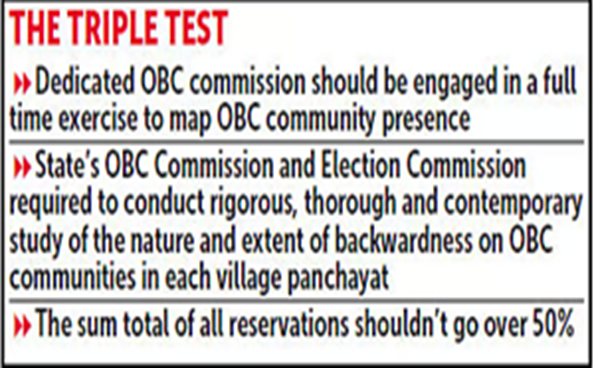PREVIOUS
Jharkhand’s OBC Data Collection
May 6 , 2025
17 hrs 0 min
16
0
- Jharkhand has finished collecting data on the population of Other Backward Classes (OBCs) from all districts of the state.
- The data collection is a part of the first step of the “triple test”.
- The Triple test is a three-step guideline laid down by the Supreme Court to ensure OBC quotas in local bodies are determined in a fair and constitutional manner.
- The following are the three steps of the so-called “triple test”.
- Setting up a dedicated commission to conduct a rigorous empirical inquiry into the nature and implications of the backwardness in local bodies;
- Specifying the proportion of reservation required in local bodies in light of recommendations of the commission, so as not to fall foul of overbreadth; and
- To ensure reservation for SCs/STs/OBCs taken together does not exceed an aggregate of 50 per cent of the total seats.
- In Jharkhand, OBCs are subdivided into more socially and educationally backward BC-I (Backward Class I), and the relatively better-off BC-II (Backward Class II) categories.
- Currently, there are 127 castes under the BC-I category, and around 45 under BC-II.
- The Kudmi community, a subgroup of the Mahato/Mahto caste, is the largest OBC community.

Leave a Reply
Your Comment is awaiting moderation.


